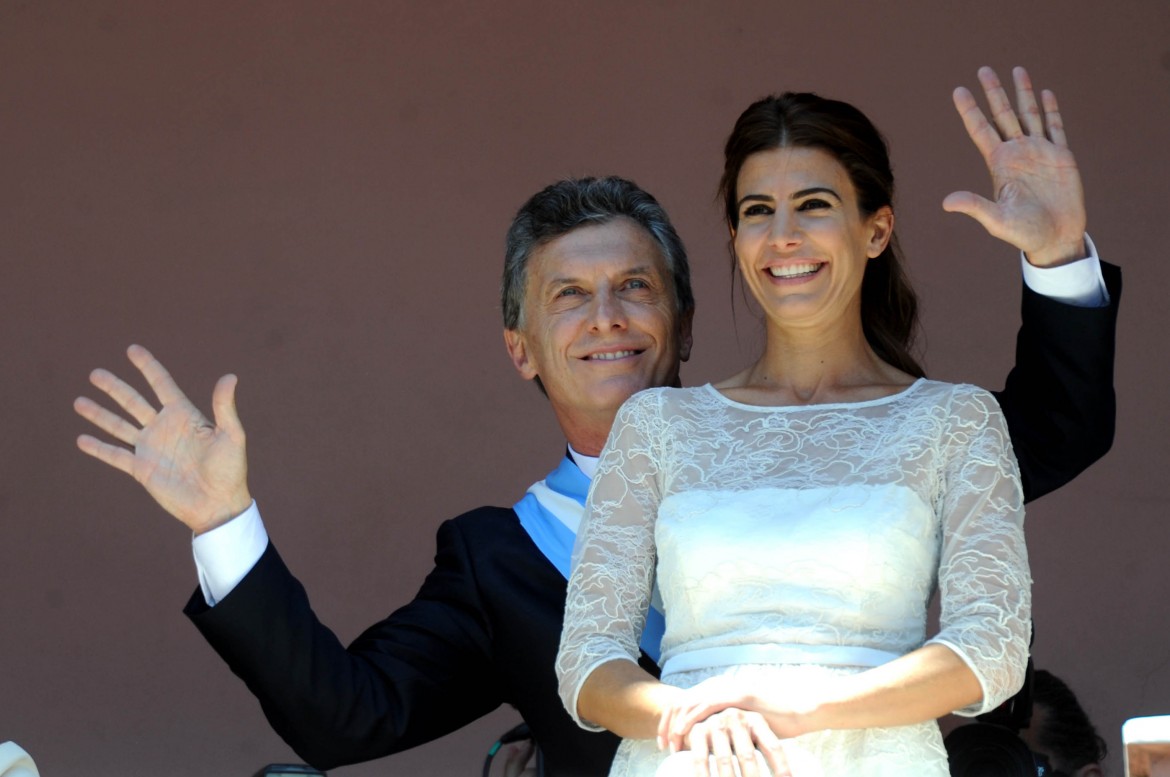Argentina
Argentina’s Macri unleashes neoliberal storm
The entrepreneur-president has issued 29 emergency decrees — as many as former President Cristina Kirchner issue in her eight years in office.

Argentines are in the streets against the return of the right. A week after the victory over Daniel Scioli by a handful of votes, the entrepreneur Mauricio Macri has initiated a plan of neoliberal measures, provoking a wave of protests. Already in his first 72 hours in power, Macri signed 29 decrees “of necessity and urgency”: as many as former President Cristina Kirchner issued in her eight years in office. The measures destroy the exchange market, finance the banks, pave the way to large companies and destroy the purchasing power of workers.
Macri abolished by decree the restrictions on the purchase of dollars, imposed in 2011 to curb the flight of capital abroad and contain the reserves of the Central Bank. The measure is unconstitutional, according to representatives of the Front for Victory, which announced an urgent mobilization in parliament today. The neoliberal package goes against the achievements made in recent years of Kirchnerism and promises to privatize public services and education.
First, Macri targeted the highly advanced media law, which gives plenty of space to community media. On Thursday, the New Meeting party, headed by the President of the Federal Authority on Audiovisual Communication Services, Martin Sabbatella, convened a protest at the Plaza de los Dos Congresos, in front of the National Congress in Buenos Aires. Several popular organizations joined in, including the Cámpora youth movement, trade unions and human rights organizations.
In one of his first public acts, Macri insulted the Abuelas de Plaza de Mayo, and guaranteed the extreme right that those responsible for the more than 30,000 disappeared people during the military dictatorship will no longer be prosecuted. Now he wants to send Ebe de Bonafini the president of the Madres de Plaza de Mayo, to jail for “inciting violence.” Bonafini, who had not spared criticism even to Kirchnerism for having decided to nominate the entrepreneur Daniel Scioli as a candidate, organized a demonstration against Macri on Dec. 10. And now, despite being 87 years old, she invites piqueteros and those self-summoned to rebel against the neoliberal package.
Without the Senate’s agreement, Macri also appointed as judges of the Supreme Court of Justice the former Minister of Justice and Human Rights, Horacio Daniel Rosatti and the rector of the Universidad de San Andrés, Carlos Fernando Rosenkrantz.
The entrepreneur is expressly targeting the new alliances in Latin America and the Caribbean, now highly threatened by the victory of the right in Venezuela, which is moving in the same direction. The putrid wave is expected to spread into Brazil as well, and is pushing for an institutional coup against President Dilma Rousseff. A strategy that is well within the framework of the new Trans-Pacific Partnership, the U.S.-led trade agreement through which the U.S. attempts to recover its former “backyard.” In this context, Macri has already dismantled the agreements Kirchner made with Iran.
The right had repeatedly tried to achieve these goals, organizing the impeachment attempt against the former president, making strong demands on the investigation for the attack on the Jewish Mutual Aid Society that killed 85 people in 1994. The death of Alberto Nisman, the magistrate assigned by Nestor Kirchner to investigate, brought to light the ambiguous role of the spy Antonio “Jaime” Stiuso, an international secret service agent related to the dictatorship. Driven by Stiuso, Nisman had tried to bring President Kirchner to justice, accusing her of having covered up the Iranian tracks during investigations. Kirchner had the opportunity to accelerate the pending reform of the secret services, which now Macri has promised to manage.
After repeated interventions in Venezuela’s internal affairs, now the Minister of Foreign Affairs of Argentina, Susana Malcorra, has offered her services as a “mediator” in the conflict over the Esequibo waters, a border dispute between Venezuela and Guyana. The U.S. multinational oil giant, Exxon Mobil, has already resumed inspections to extract oil from the second largest oil field in the world yet to be explored: a proposed $200 million deal that would last for 10 years.
Originally published at http://ilmanifesto.info/macri-appena-eletto-scatenato-neoliberal/ on 2015-12-19
